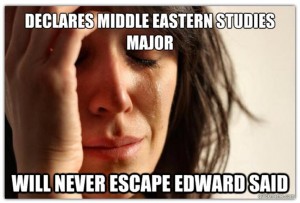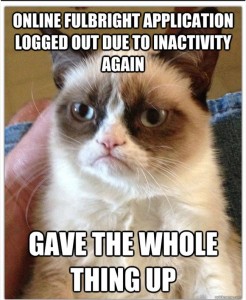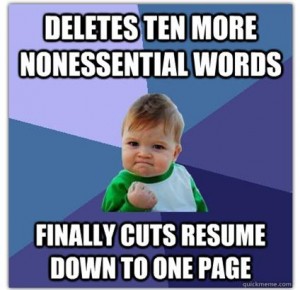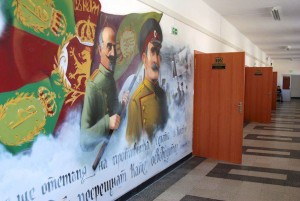Welcome back, Scripps! To all students, I hope you’re excited for your classes and are looking forward to the semester! The start of fall semester is really something special. Unlike the spring semester, it is a start of a whole new beginning. Coming fresh from summer, it’s a chance to bring those experiences back to campus and reconnect with the community. I thought I would be a little less flustered at the start of my senior year, but instead I lost my ID while moving in and I accidentally locked myself out of my suite on the first day of class. But starting senior year reminded me of a certain story about my first week at Scripps.
As a first-year, I went to a Fellowship Informational Session during the first week of school. 18-year-old me had decided to go to as many things as possible on campus and learn about all the opportunities available. At this point in time, I only really remembered the names of the girls in my hall and had started remembering where my classes were. Tiny conquests like that helped me adjust to college.
But 18-year-old me was really good at overwhelming herself (so is current soon-to-be-22-year-old me). I remember stepping into Vita Nova Hall, greeted by a sign in sheet. Maybe two dozen or so names were on the list before mine, but as I scanned the lines to write my own, the last column made my stomach lurch. Every other student in that room was graduating in 2013. I immediately thought, what am I doing here? All these students are seniors, and I’m just a first-year… Should I not be here? I mean, I just want to learn about these opportunities… Right?
I awkwardly sat near the exit and felt temporarily at ease, until Professor Edwalds-Gilbert started the presentation. The presentation included the descriptions, requirements, and timelines for a number of fellowships such as the Watson, Fulbright, Napier, etc. I left about 20-minutes in to the presentation and headed straight back to my room, but decided to stop and gather myself on the bench by the huge tree on Jaqua Quad.
The overwhelming feel kept escalated in my head, I was shaky and even a teary eyed, and at the time, I couldn’t put together why. I had just gotten to college, eager to take in as much as I could, and then immediately I felt like I was out of place, like I could never possibly pursue those opportunities after graduating.
Well, here I am now, the last first day of school, when three years ago, I couldn’t tell you what I wanted to major in let alone what career path I wanted, and that was okay.
Looking back on that story, I was scared. I was scared of the possibilities of what could be my future, and that overwhelmed me, especially since I wasn’t even completely comfortable at Scripps yet. But I take a few important things away from that experience; I must always discover what could be, by always feeding my curiosity and putting myself out there. Searching for those opportunities seems daunting at first, but throughout my time at Scripps, I have sought other experiences that have accumulated and empowered me with the confidence needed to take the next steps during my senior year in preparing for after graduation.
The Watson Fellowship Informational Session is this week on Thursday, September 4th at 3 PM in the Lang Art Building, Room 221, and I plan on attending.
So during these first few weeks of school, I encourage you to look back and see how far you’ve come. Whether you’re a first-year or a senior, your hard work has paid off to get you to where you are now. The bumpy roads are always rough, but you’ve learned more about yourself for it. I know I have! From getting accepted to Scripps and my last first day of school, first-year me would be really surprised to know what I’ve accomplished and see where I am today.




